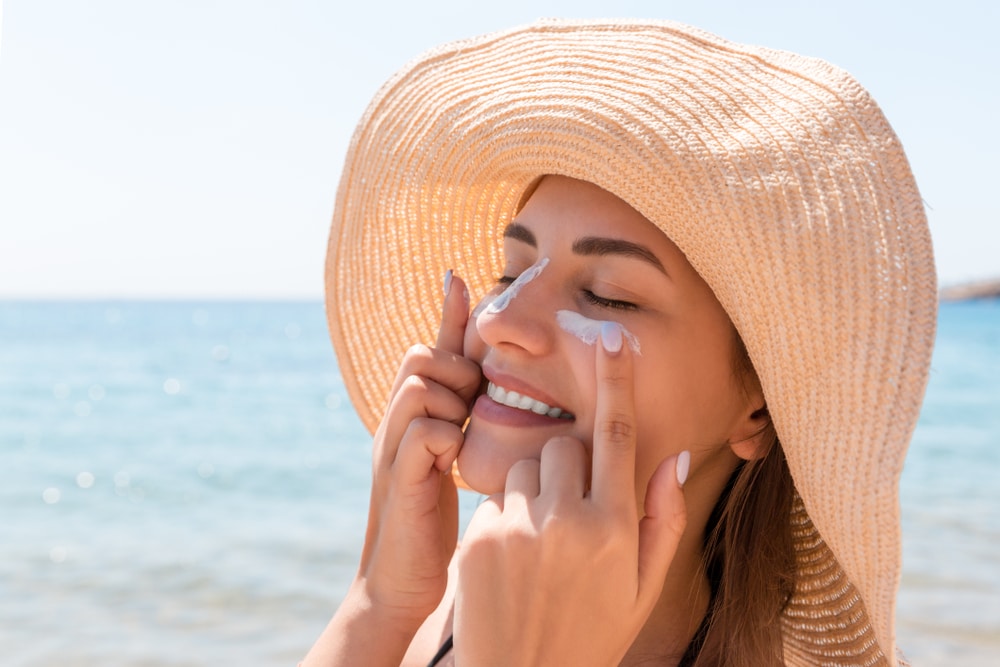Eczema is a group of inflammatory skin conditions that cause dryness, redness, scaly patches, itchiness, and skin infections. It’s a common condition that isn’t contagious and can occur from an irritant or an allergy. There are several types of eczema, and patients can have one or more types at a time.
The most common is atopic dermatitis, which often appears as a rash on the hands, creases of the elbows and knees, and neck. It can also develop on the face. There is much to understand about eczema, including who it affects, how it is caused, symptoms, and available treatments.
Who Does Eczema Affect?
Eczema affects more than 31 million Americans and can begin during childhood, adolescence, or adulthood. There are many differences and similarities between children and adult patients.Children
- Newborn babies often experience eczema in the first few weeks and months after birth.
- At some point, 15-30% of children will develop eczema, with 60% of cases developing in the first year of life.
- In infants and young children, eczema will appear on the cheeks, outside the elbows, and knees.
- In the U.S., children who are African American/Black or Hispanic often have more severe eczema than white children.
- If born outside of the U.S., there is a 50% lower chance of developing eczema, which does increase after living in the country for 10 years.
- 80% of children will outgrow their disease by the time they reach adolescence or adulthood.
Adults
- About 7.3% of adults have eczema, with nearly 40% dealing with moderate to severe disease.
- Many adults will keep their eczema diagnosis from childhood, but it is common for adults to develop the disease at any point in their life.
- One of the main differences in how eczema presents itself in adults versus children is the appearance of their skin.
- Adult eczema skin is extremely dry, scaly, thick, and either darker or lighter than the surrounding skin.
- It often appears on the backs of the knees, crooks of the elbows, back of the neck, face, and around the eyes.
How Eczema Is Diagnosed
Eczema is diagnosed through a physical examination and consultation with your doctor, which includes a detailed personal and family history. Often, a skin test is performed to rule out specific allergies and aid in diagnosing a condition. If you are concerned that you may have eczema, keep a log of when the eczema returns (otherwise known as a “flare-up”) and what might be different about your surroundings (e.g., did you try a different food, use a different laundry detergent, travel to a different location?). This will help your doctor narrow down triggers to determine if the cause is eczema.Types of Eczema
There are seven different types of eczema, each affecting different areas of the skin and with different triggers and treatment recommendations. It is important to visit your dermatologist to identify which type of eczema you may have.- Atopic dermatitis: This is the most common form of eczema and causes inflammation, dryness, and itchy skin.
- Contact dermatitis: This type is caused by an allergy, usually an environmental trigger.
- Dyshidrotic eczema: This type’s main symptoms are very dry skin with rashes, blisters, and a burning sensation.
- Neurodermatitis: This form of eczema, also called discoid eczema, makes small patches of the skin itchy and scaly.
- Nummular eczema: This form of eczema creates small, rounded lesions all over the body, particularly on the arms and legs.
- Seborrheic dermatitis: This eczema affects the scalp, forehead, and hairline. In babies, this is known as cradle cap.
- Statis dermatitis: This type looks like varicose veins by creating skin discolorations on the legs.
Causes of Eczema
Eczema is caused by a number of factors. For children, it is often associated with food and environmental allergies or inherited. Eczema is one-third of the “atopic march,” which is when young children are diagnosed with eczema, followed by a food allergy, and then allergic rhinitis and asthma. Children who have a family history of asthma or hay fever have a higher risk of developing eczema.Symptoms of Eczema
Eczema symptoms vary depending on the severity of the disease and the person affected. Each patient may present with eczema in different ways, but this condition almost always involves itching. Sometimes the itch gets so bad that the patient scratches until it bleeds. Other common symptoms of eczema include:- A red rash or red patches of skin for those with lighter skin
- Grey, ashen, darker brown, or purple patches for those with darker skin
- Inflamed or discolored skin
- Dry skin, which can crack and bleed
- Blisters or other areas of oozing or crusting
- Scaly patches that are rough, leathery, or scaly
Eczema Triggers
One of the most challenging aspects of eczema is identifying triggers and knowing how to avoid them. Triggers can be different for each person, but the common ones include:- Environmental Factors: Weather changes can exacerbate eczema symptoms. Whether cold and dry or hot and humid, each patient’s eczema may be triggered by different weather. If triggered by cold and dry weather, keep the skin as moisturized as possible. If triggered by hot and humid, try to stay cool by hydrating and wearing loose, breathable clothing.
- Allergens: Eczema and allergies are often closely related. Coming in contact with an allergen, such as dust, pet dander, or mold, causes a delayed and itchy rash on the skin
- Irritants: Avoid using products or wearing fabric that may irritate the skin. Scented products, such as soap, lotion, perfume, and shower gel, can worsen eczema. Try to stick to hypoallergenic, scent-free products.
- Stress and Anxiety: When under stress, the body releases cortisol, a hormone that helps the body cope. This could potentially lead to an inflammatory response in the skin.
- Diet: Certain foods and ingredients are inflammatory and may contribute to a flare-up. Examples are added sugars, such as soda, refined carbohydrates, such as pastries, and gluten, such as white bread. In children, food allergens (e.g., dairy, eggs, soy, nuts) often cause eczema flare-ups.
- Hormonal Changes: Hormone fluctuations are completely normal in most patients, such as during menstrual cycles or menopause. Talk with your provider if this is happening to you to find solutions.
- Sweat: Sweating can be a trigger for some patients. The Houston area is subtropical and can make the skin feel sticky, sweaty, and hot. Try to keep your skin as cool as possible, such as keeping a fan nearby and blotting sweat away instead of rubbing.
Impacts of Eczema
Eczema impacts the patient physically, emotionally, and financially. The intense itching and pain and the frequency, duration, and severity of flare-ups can significantly affect one’s quality of life. Sleep disturbances are a common side effect of eczema. These occur in 67% of children who suffer from eczema, and parents of children with eczema are 4 to 8 times more likely to have fewer than 6 hours of sleep a night. For adults suffering from eczema, 1/3 will have sleep-related issues such as insomnia, shorter sleep time, daytime sleepiness, and fatigue. Eczema also increases the risk of developing other conditions. In addition to the atopic march in children, more than 20% of adults with eczema have asthma and an increased risk for allergic rhinitis and food allergies. Additionally, patients who suffer from eczema are at a higher risk of:- Increased blood pressure
- Heart disease
- Obesity
- Osteoporosis and bone fractures
- Serious bacterial, viral, and fungal infections
- Eye-related conditions such as conjunctivitis (pink eye), cataracts, blepharitis (eyelid inflammation), keratitis (inflammation of the cornea), and keratoconus (thinning of the cornea).
Eczema Treatments and Remedies
While there is no cure, eczema can be controlled with various at-home and prescription treatments. The goal of treatment is to reduce inflammation, relieve itching, and reduce the frequency and severity of flare-ups. Let’s discuss these further.At-Home Eczema Remedies:
- Skin care regimen: The best way to manage itchy skin is to try and prevent it from happening in the first place. While a skin care regimen won’t eliminate eczema, it will help manage the symptoms. Ideas include applying moisturizer often, wearing sunscreen in the sun, using lukewarm water for baths and showers, and taking an oatmeal bath with oatmeal soap or baking soda.
- Antihistamines: Antihistamines will relieve eczema symptoms associated with allergies. Examples include cetirizine (Zyrtec), loratadine (Claritin), and diphenhydramine (Benadryl).
- Pain Relievers: Pain relievers, such as acetaminophen (Tylenol) and ibuprofen (Advil) can help with eczema-associated pain, burning, and inflammation.
- Topical steroid creams: Steroid creams, such as hydrocortisone 1%, that are applied to the skin can be purchased over the counter and reduce redness, swelling, and itchiness. Your provider can prescribe a hydrocortisone ointment over 1% to provide additional relief.
- Moisturizers: Not all moisturizers are created equal. Ointments are preferred over creams, and creams are preferred over lotions. A good rule of thumb is to use moisturizers in a tub rather than a pump. Check the ingredients and avoid fragrances, alcohol, and dyes. The National Eczema Association lists products that received their Seal of Acceptance.
- Shampoos: If you suffer from eczema on the scalp, dandruff shampoos can help. The active ingredient in dandruff shampoos works effectively against seborrheic dermatitis.
- Wet Wrap Therapy: During severe flare-ups of intense itching and pain, wet wrap therapy can help rehydrate and calm the skin, allowing topical medications to work better. To do this, moisten a clean dressing or cotton clothing item in warm water until slightly damp. Then, wrap the moist dressing around the affected area. Wrap a dry dressing around the wet one. It is best to do wet wrap therapy overnight, or at least for several hours.
Prescription/Provider Ordered
- Biologics: Biologic drugs are injectables that use human DNA to treat diseases at the cellular level. These drugs stop aspects of the body’s immune system that cause eczema flare-ups.
- Phototherapy: Phototherapy, also called light therapy, reduces itchiness and inflammation with different wavelengths of ultraviolet (UV) light. Phototherapy is typically used when other conventional means of treatment, such as topical steroid creams, are not effective. It can take one or two months of steady treatment to start to see symptom relief.
- Immunosuppressants: Immunosuppressants are prescription medications that control the immune system to slow down or prevent eczema symptoms. These drugs are usually used for children and adults with moderate to severe eczema, allowing the skin to heal during flare-ups.



